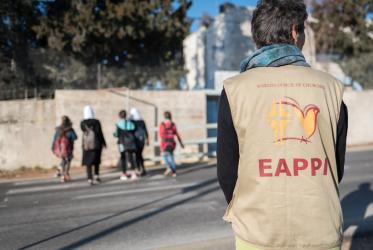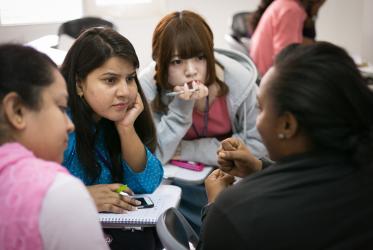Displaying 1 - 20 of 21
12 September 2019
Peacemakers at work in Sri Lanka
29 April 2019
Fr Alexi - a peacemaker in Syria
21 December 2018
A moment in ‘Time’: an interreligious vision in Erlangen
20 December 2018
WCC delegation visits China
04 January 2018
G20 summit: call to pray for peace in Hamburg
07 July 2017
Women in development create space for hope in Egypt
15 June 2017
WCC gravely concerned over Israel’s travel ban
09 March 2017
Plans for 2017 decided by WCC Executive Committee
01 December 2016










